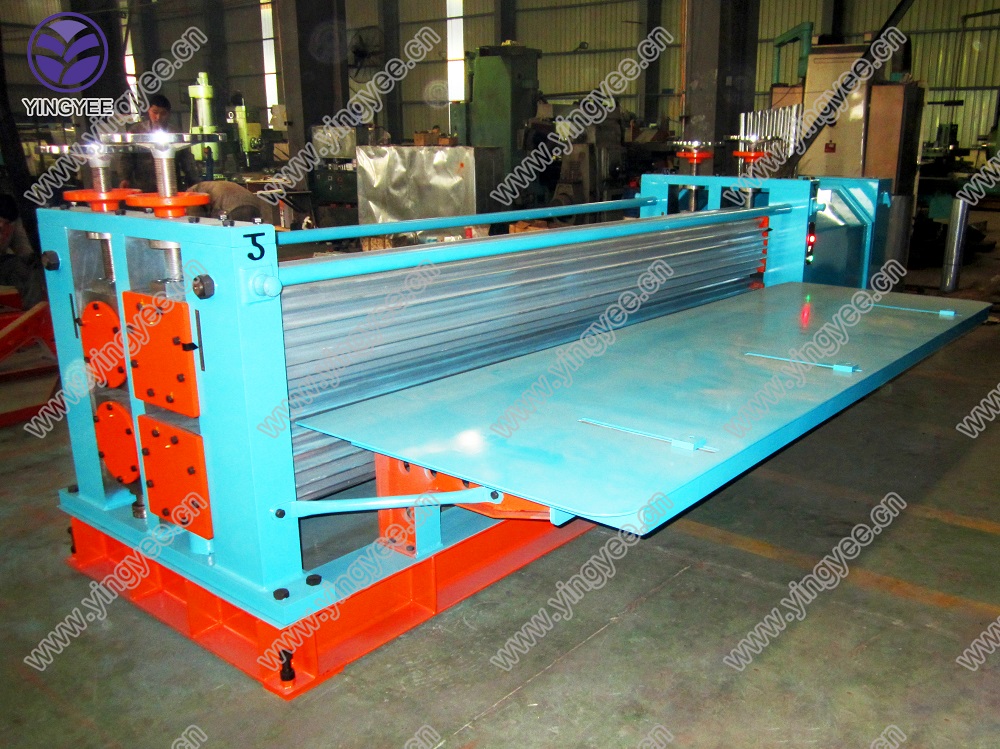
Ceiling Bar Roll Forming Machine Revolutionizing the Construction Industry
In the ever-evolving landscape of the construction industry, efficiency, durability, and precision are paramount. One of the integral components that contribute to these aspects is the ceiling bar roll forming machine. Designed to produce ceiling bars with remarkable accuracy and speed, this machinery is transforming how construction materials are manufactured and deployed.
Understanding the Ceiling Bar Roll Forming Machine
A ceiling bar roll forming machine is specialized equipment that creates ceiling support structures from metal sheets, often made of galvanized steel or aluminum. The process involves feeding metal coils into the machine, which then shapes these materials into the desired cross-sectional profiles. The machine operates through a series of rollers that gradually shape the metal as it passes through, enabling the production of uniform, high-quality ceiling bars.
Advantages of Using Roll Forming Technology
1. Precision Engineering One of the primary benefits of using a roll forming machine is the precision with which it manufactures components. Each bar produced maintains strict adherence to specified dimensions, reducing material waste and ensuring compatibility with various construction requirements.
2. High Production Efficiency Ceiling bar roll forming machines are designed for high-speed production. Once set up, they can continuously produce ceiling bars, significantly increasing output compared to traditional manufacturing methods. This efficiency is particularly beneficial for large-scale construction projects that demand timely material supply.
3. Cost-Effectiveness Although the initial investment in a ceiling bar roll forming machine can be substantial, the long-term savings prove invaluable. The reduction in labor costs, along with minimal waste generation and high production rates, contributes to savings that enhance project profitability.
4. Versatility Modern roll forming machines can produce a variety of ceiling bar profiles, accommodating different project needs. From simple T-bars to intricate designs, the flexibility of roll forming allows manufacturers to cater to diverse architectural requirements without the need for extensive machinery adjustments.

5. Durability and Strength The materials processed through roll forming are typically high-quality metals, resulting in ceiling bars that possess superior strength and durability. This is crucial in achieving structural integrity, particularly in commercial and industrial buildings where ceiling supports must withstand significant loads and stresses.
Applications in the Construction Industry
The ceiling bar roll forming machine finds its applications primarily in the construction and renovation of commercial, industrial, and residential buildings. Ceiling bars are essential components in dropped ceilings, which help in hiding mechanical systems such as HVAC, electrical wiring, and plumbing. By allowing for easy access and maintenance of these systems, ceiling bars contribute to the overall functionality and aesthetic appeal of interior spaces.
Additionally, the use of roll-formed ceiling bars is widely recognized in the manufacture of modular ceilings and prefabricated panels. These systems expedite the construction process, allowing for faster assembly and reduced labor costs on-site.
Technological Innovations in Roll Forming
The development of advanced technologies within the ceiling bar roll forming sector has improved the quality and capabilities of these machines. Innovations such as computerized control systems, automation, and integration with CAD/CAM software have streamlined production processes. These technologies allow for quick adjustments in design specifications, enabling manufacturers to respond rapidly to market demands.
Moreover, the incorporation of sensors and data analytics has enhanced monitoring and quality control. Manufacturers can now track production metrics, ensuring consistency and identifying potential issues before they escalate into costly problems.
Conclusion
The ceiling bar roll forming machine is an essential tool in modern construction, uniquely positioned to address the industry's demands for efficiency, precision, and durability. As construction projects continue to grow in complexity and scale, the role of these machines becomes even more critical. With ongoing technological advancements, the future of ceiling bar manufacturing looks promising, ensuring that both manufacturers and construction professionals can meet the challenges of the modern building landscape effectively. By adopting roll forming technology, the construction industry can enhance productivity, reduce costs, and improve the overall quality of building materials, thereby elevating standards in construction practices worldwide.